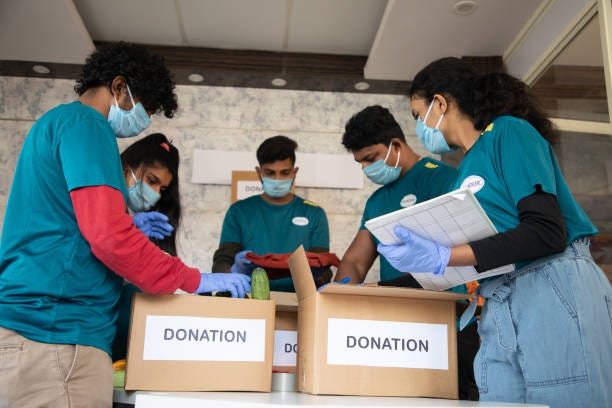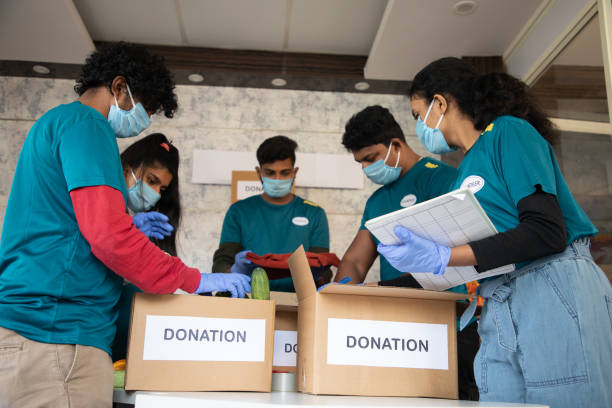Non-Governmental Organizations (NGOs) have emerged as crucial players in fostering youth empowerment, igniting positive change, and building a better future. With over a decade of experience, this article delves into the multifaceted role Noida NGOs play in empowering the youth, driving social progress, and cultivating leaders who will shape tomorrow’s world.

Here are the role of NGOs in Youth Empowerment
1. Skill Development and Training
NGOs actively engage in skill development programs that equip young individuals with practical skills relevant to the job market. Workshops, vocational training, and entrepreneurship initiatives not only enhance their employability but also instill confidence and self-reliance. These programs often focus on technical skills like coding, digital marketing, and trades, empowering youth to explore diverse career paths.
2. Education Access and Advocacy
NGOs advocate for accessible and quality education, striving to bridge the education gap. They promote scholarships, learning centers, and mentorship programs that help disadvantaged youth attain higher education and unlock a world of opportunities. By providing financial support, academic guidance, and resources, NGOs enable young people to overcome barriers and pursue their educational dreams.
3. Entrepreneurship and Innovation
Youth empowerment goes hand-in-hand with fostering innovation and entrepreneurship. NGOs provide mentorship, resources, and funding to help young people turn their creative ideas into impactful ventures, thus contributing to economic growth and job creation. By offering incubation programs, business development support, and access to networks, NGOs fuel the spirit of innovation among youth.
4. Leadership and Advocacy Training
NGOs offer leadership and advocacy training that empowers young individuals to become change-makers in their communities. These programs teach them effective communication, public speaking, and community engagement skills, enabling them to advocate for their rights and drive positive change. Youth are encouraged to take initiative, voice their opinions, and lead initiatives that address social issues.
5. Civic Engagement and Social Responsibility
NGOs encourage youth to actively participate in civic activities and contribute to society. Through volunteering, community service, and awareness campaigns, young individuals learn the value of social responsibility and become active citizens. By involving youth in community development projects, NGOs nurture a sense of belonging and encourage them to make a tangible impact.
6. Mental Health and Well-being Support
Recognizing the unique challenges youth face, NGOs provide mental health support services. Workshops, counseling, and awareness programs help young people cope with stress, anxiety, and other mental health issues, promoting overall well-being. NGOs create safe spaces where youth can openly discuss their mental health concerns and access the resources they need.
7. Gender Equality and Inclusivity
NGOs work towards gender equality by empowering young women and creating inclusive spaces for all genders. They challenge gender stereotypes, provide mentorship for female leaders, and advocate for policies that ensure equal opportunities. By promoting gender-sensitive programs and fostering a culture of respect, NGOs contribute to a more inclusive society.
8. Networking and Exposure
NGOs facilitate networking opportunities and exposure to different industries for young individuals. Through internships, seminars, and conferences, youth gain insights, expand their horizons, and build connections that can propel their careers. Exposure to diverse fields and professionals equips them with valuable insights and knowledge, preparing them for the competitive job market.
Conclusion
NGOs play a pivotal role in empowering the youth to become active, responsible, and capable leaders of tomorrow. By providing skill development, education access, entrepreneurship opportunities, and leadership training, these organizations nurture a generation that is equipped to address societal challenges and drive positive change. As experienced professionals in the field, NGOs continue to inspire, guide, and uplift the youth, shaping a brighter and more inclusive future for all. With their dedication, resources, and commitment, NGOs remain catalysts for youth empowerment, ensuring that the potential of the younger generation is harnessed for the greater good.





Comments